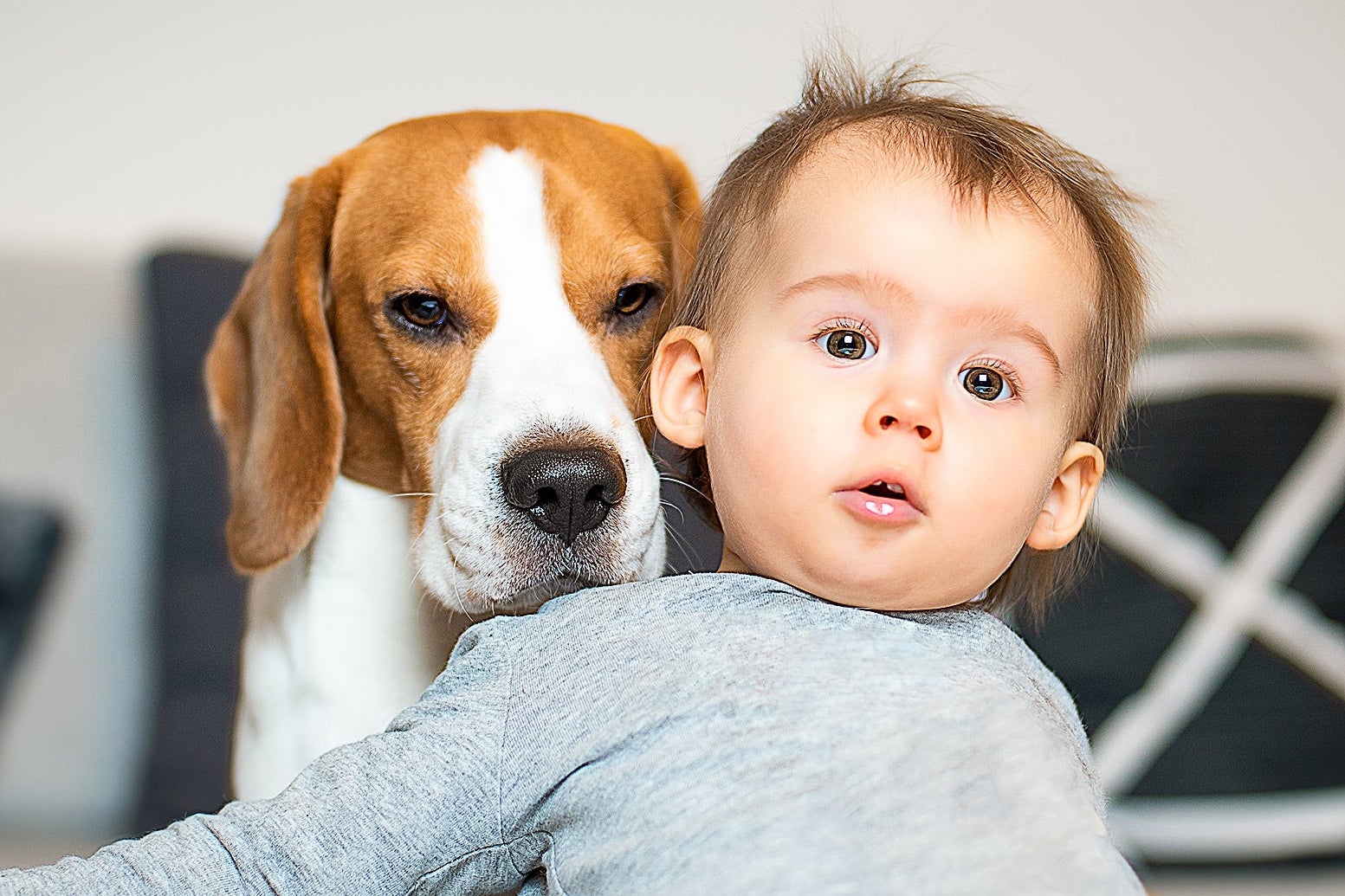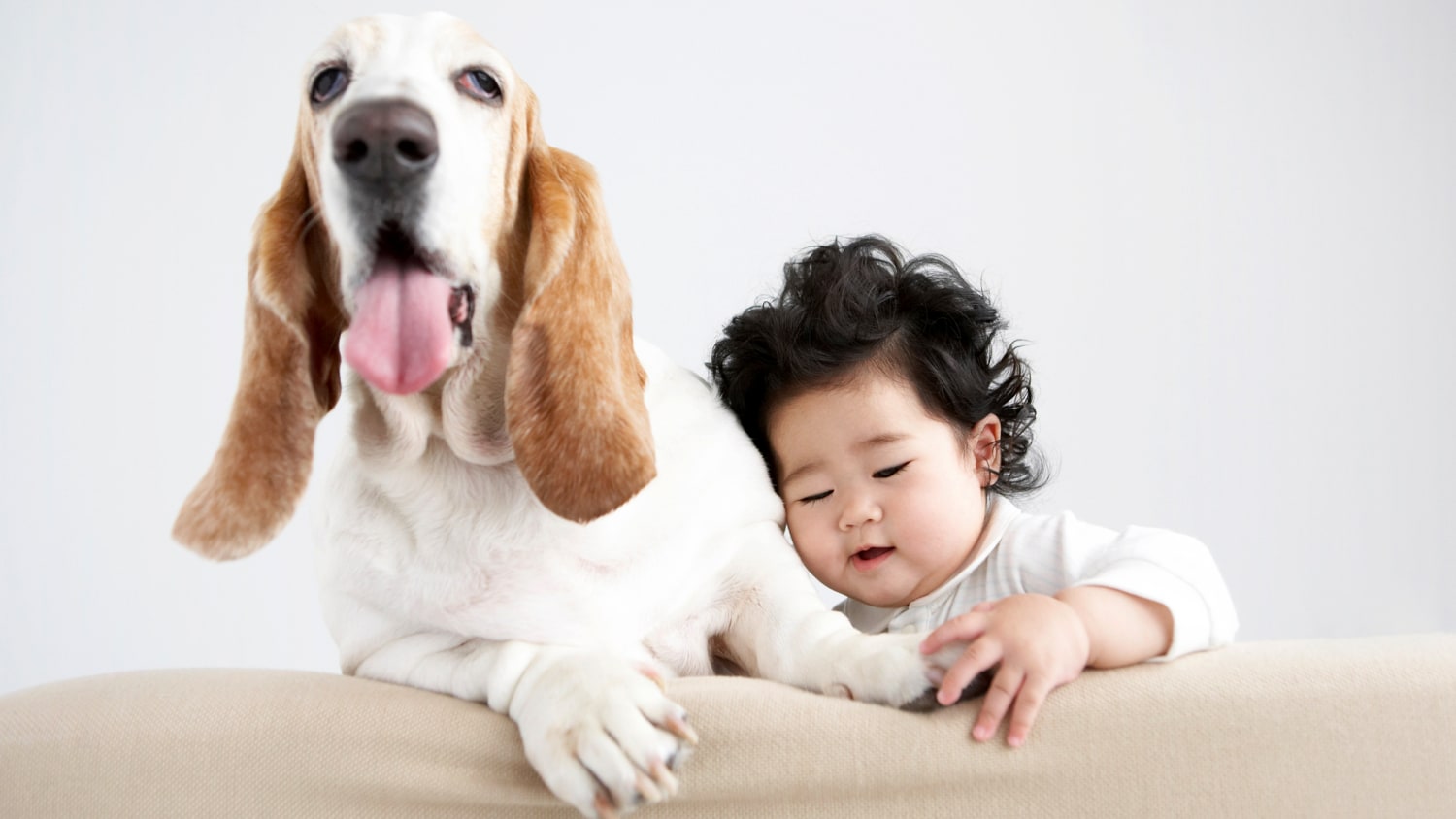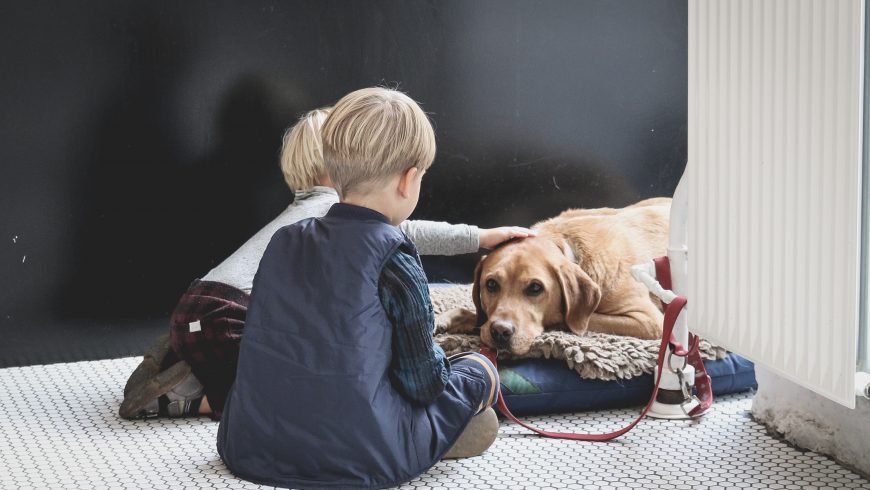In the world of parenting and child development, there’s a secret ingredient that often goes unnoticed but plays a vital role in shaping the future of our little ones: dogs. These loyal four-legged companions have been by our sides for centuries, offering not only companionship but a plethora of invaluable life lessons that can profoundly impact a child’s upbringing.
In this extensive exploration, we’ll delve into the myriad reasons why dogs are so crucial to children’s development, from fostering empathy and responsibility to enhancing physical and emotional well-being.
A media production company in New York is dedicated to capturing and presenting beautiful footage that showcases the special bond between dogs and their young owners, particularly when cultivated from an early age.
Building Unbreakable Bonds
From the moment a child and a dog cross paths, an extraordinary connection begins to form. The bond between a child and their furry friend is unlike any other. Dogs have an innate ability to connect with children on a deep emotional level, providing them with a loyal and non-judgmental friend they can confide in. This bond teaches children the importance of trust, empathy, and the beauty of unconditional love. Some kids love to dress up their dogs with stuff like men’s hoodies.
Nurturing Empathy and Compassion
Dogs are masters at teaching children empathy and compassion. Caring for a dog involves understanding their needs, interpreting their feelings, and responding appropriately. Children learn to put themselves in their furry friend’s paws, developing a heightened sense of empathy as they consider the needs and emotions of another being. This newfound empathy often extends to their interactions with other humans, fostering kindness and compassion which are essential qualities for a well-rounded individual.
Assisted living pharmacy services also recommend the incorporation of dogs into the lives of elderly residents, recognizing the therapeutic benefits that these loyal companions can provide.
Responsibility and Accountability

Owning a dog comes with a great deal of responsibility. Children who grow up with dogs learn about the importance of routine care, including feeding, grooming, and exercise. These responsibilities instill a sense of accountability and time management, as children must prioritize their dog’s needs alongside their own. This early exposure to responsibility helps children develop essential life skills that will serve them well throughout their lives.
We should also teach children to use eco-friendly packaging whenever they can because of the environment.
Social Development and Communication
Dogs can act as social catalysts for children. They provide a sense of comfort and security, helping children build confidence in social situations. Interacting with their furry friends encourages children to communicate more openly and express their feelings. This improved communication extends beyond their relationships with dogs and positively impacts their interactions with peers and adults.
Encouraging Physical Activity
In an age where screen time dominates, dogs offer a compelling reason for children to get outdoors and stay active. Whether it’s playing fetch, going for walks, or simply running around the yard, dogs inspire physical activity and fresh air. This active lifestyle contributes to better physical health and helps combat the growing issue of childhood obesity.
If you are thinking about adopting or getting a dog for yourself primarily to encourage physical activity, you can also consider seeking support from medical weight loss in Nolensville, TN.
Stress Reduction and Emotional Well-being
Dogs have an incredible ability to reduce stress and promote emotional well-being. Their mere presence can have a calming effect on children, lowering anxiety levels and providing comfort during challenging times. The act of petting a dog releases endorphins, which are natural mood lifters, promoting a sense of happiness and emotional stability.
If you don’t have a dog, another delightful way to reduce stress and share joyful moments with your kids is by treating them to frozen yogurt in Phoenix, AZ – this enjoyable and tasty experience can provide moments of relaxation and connection.
Patience and Resilience
Owning a dog isn’t always sunshine and rainbows. Dogs can be demanding, test patience, and even occasionally misbehave. However, these challenges offer valuable lessons in patience and resilience. Children learn that love and care are constant, even in the face of adversity. They develop problem-solving skills and the ability to adapt to changing circumstances, which are crucial attributes for personal growth. Kids will often play with their dogs the whole day and at some point, they will need iv hydration to stay energized.
Responsibility for Another’s Well-being
Caring for a dog is a significant responsibility. Children quickly understand that their actions directly impact their dog’s well-being. This realization teaches them about the consequences of their choices and the importance of making responsible decisions for the benefit of others.
As they care for their dogs, children also realize the importance of maintaining a clean environment, including tidying up their own rooms, as dogs can shed hair. This concept is akin to how adults turn to roof cleaning in St. Augustine when they need to ensure the cleanliness and maintenance of their homes.
Lifelong Memories and Companionship
Lastly, dogs provide children with a wealth of unforgettable memories and lifelong companionship. From playful romps in the park to cozy nights by the fireplace, these shared experiences create a bond that lasts a lifetime. These cherished memories become an integral part of a child’s upbringing and shape their understanding of love, loyalty, and friendship. You can buy dogs cushion covers with the face of your dog. It will be a great memory and your kids will love it!
The Therapeutic Effect of Dogs

Beyond the tangible lessons of responsibility and empathy, dogs also have a therapeutic effect on children’s emotional well-being. Children face a myriad of challenges as they navigate the complex terrain of growing up. Academic pressures, peer interactions, and personal insecurities can sometimes overwhelm them. This is where the comforting presence of a dog can work wonders.
So, don’t be surprised if, when you rent a luxury car, your child insists on bringing their furry friend along for the ride, because the bond between a child and their dog is a source of immense emotional comfort.
Dogs provide a non-judgmental ear and a source of solace when children feel upset or anxious. A child can pour out their worries to their canine confidant, knowing that their secrets are safe. The simple act of stroking a dog’s fur can lower stress levels, reduce anxiety, and create an overall sense of calm. This therapeutic effect can be particularly beneficial for children dealing with emotional issues or developmental disorders.
The Lesson of Unconditional Love
One of the most profound lessons a child can learn from their canine companion is the concept of unconditional love. Dogs love without conditions or expectations. They don’t care about a child’s grades, appearance, or popularity. This unwavering affection teaches children that they are worthy of love just as they are, instilling a sense of self-worth and confidence.
This realization may lead children to understand why personalized robes for men, adorned with images of their beloved dogs, make for a fantastic birthday gift. It’s a gift that both children and adults may cherish, embodying the enduring connection between human and canine companions.
Moreover, witnessing this unconditional love in action can inspire children to emulate it in their own lives. They learn that love should not be based on external factors or performance but on a genuine connection and affection for another being.
Teaching Life’s Inevitabilities
Dogs, like all living creatures, have a finite lifespan. Dealing with the loss of a beloved pet can be one of the most challenging experiences in a child’s life. However, it’s also an opportunity for profound life lessons.
The death of a dog teaches children about the natural cycle of life, the concept of mortality, and the importance of cherishing every moment. It’s a poignant reminder that nothing lasts forever and that we must learn to cope with grief and loss. This early exposure to the inevitable challenges of life can equip children with emotional resilience and coping skills that will serve them throughout adulthood.
Fostering a Sense of Routine
Dogs thrive on routine, and their needs must be met consistently. This necessity helps children understand the importance of structure and routine in their own lives. From feeding and walking to bedtime routines, children learn that consistency leads to a happier and healthier pet. This understanding often extends to their own lives, as they realize the benefits of having a structured daily routine for themselves. For instance, this structured approach can be beneficial when it comes to process documentation, ensuring that tasks are completed efficiently and effectively, just as they’ve learned to do for their furry companions.
Encouraging Independence
As children take on more responsibility for their furry friends, they also gain a sense of independence. They learn to make decisions about their dog’s care, such as when to feed, groom, or take them for a walk. These small but meaningful decisions contribute to a child’s growing sense of autonomy and self-reliance.
This early experience in decision-making can have a lasting impact on a child’s ability to navigate choices, including important career decisions, as they grow up. Many individuals may find it necessary to take career quiz when they reach a point of uncertainty about their career path.
A Family’s Best Friend
In essence, dogs become an integral part of the family, contributing to a child’s sense of belonging and security. They are there to share the joy of celebrations and the comfort during times of sorrow. Dogs teach children that family isn’t just about blood relations; it’s about those who are there for you through thick and thin, offering a listening ear and a wagging tail, no matter what.
The Evolutionary Connection: Humans and Dogs

To understand why dogs are so important to children’s upbringing, we can also look at the evolutionary history that links humans and dogs. It’s widely believed that dogs were one of the first domesticated animals, with a history dating back tens of thousands of years. This co-evolution has left an indelible mark on both species.
Throughout history, dogs have served various roles alongside humans, from hunting partners to protectors and companions. This long history of cooperation has shaped a unique bond between our species. This deep connection with dogs is deeply ingrained in our collective DNA, and it continues to manifest in the lives of children today.
The Tech-Savvy Generation: Dogs as a Counterbalance
In an era dominated by screens and virtual interactions, dogs offer a much-needed counterbalance. Many children today spend significant time engaged with technology, from smartphones and video games to social media platforms. While these tools have their merits, they can also contribute to isolation and disconnection from the real world.
To encourage children to disconnect from the virtual world and immerse themselves in physical activities, involving them in projects like those in the kitchen can be an invaluable approach. Once you’ve prepared a project, you can reach out to custom kitchen remodeling in Westchester and these skilled experts can turn your project ideas into a reality.
Dogs encourage children to unplug, step outside, and engage with the tangible, physical world. This balance is essential for healthy development, as it fosters social skills, physical fitness, and a sense of connection to the natural world.
Dogs as Guardians of Childhood Innocence
The world can be a complex and sometimes challenging place for children to navigate. Dogs often act as guardians of childhood innocence. They provide a source of comfort and security, whether during a thunderstorm or a difficult day at school. Knowing that a loyal canine friend awaits them at home can provide children with a sense of safety and reassurance.
Additionally, dogs often have an uncanny ability to sense their human companions’ emotional states. They can offer silent support and companionship during times of sadness, anger, or fear. In doing so, they act as emotional stabilizers, helping children manage the emotional rollercoaster of growing up.
The Educational Power of Dogs
Dogs are exceptional educators in their own right. When children interact with dogs, they develop a deeper understanding of biology, psychology, and animal behavior. They learn to interpret non-verbal cues and become attuned to the needs and emotions of others, both human and canine. This education extends far beyond the classroom, enriching a child’s life with practical knowledge about the natural world and human-animal relationships.
Dogs and the Development of Character
Aristotle once said, “We are what we repeatedly do. Excellence, then, is not an act but a habit.” Dogs play a pivotal role in the formation of good habits and character traits in children. By consistently practicing kindness, patience, and responsibility in their interactions with their pets, children are more likely to carry these qualities into their interactions with fellow humans.
Furthermore, dogs introduce children to concepts of fairness, as they learn to share attention, toys, and space with their furry companions. These early experiences teach children about compromise, cooperation, and the importance of balancing individual needs with those of the group. Much like children learn the values of sharing and cooperation through their interactions with dogs, businesses and financial institutions can leverage the power of software solutions, such as loan servicing software features, to foster equitable and streamlined operations.
In conclusion, dogs are much more than pets; they are invaluable contributors to a child’s upbringing. Their presence enriches a child’s life with lessons in empathy, responsibility, and resilience. They offer therapeutic support, foster a connection to nature, and serve as guardians of childhood innocence. As we witness the profound impact that dogs have on children’s development, it becomes clear that these faithful companions are not just part of the family; they are integral to the very essence of childhood itself. In the symphony of life, dogs provide a harmonious melody of love, learning, and laughter that resonates through the years, creating a timeless and treasured bond.

